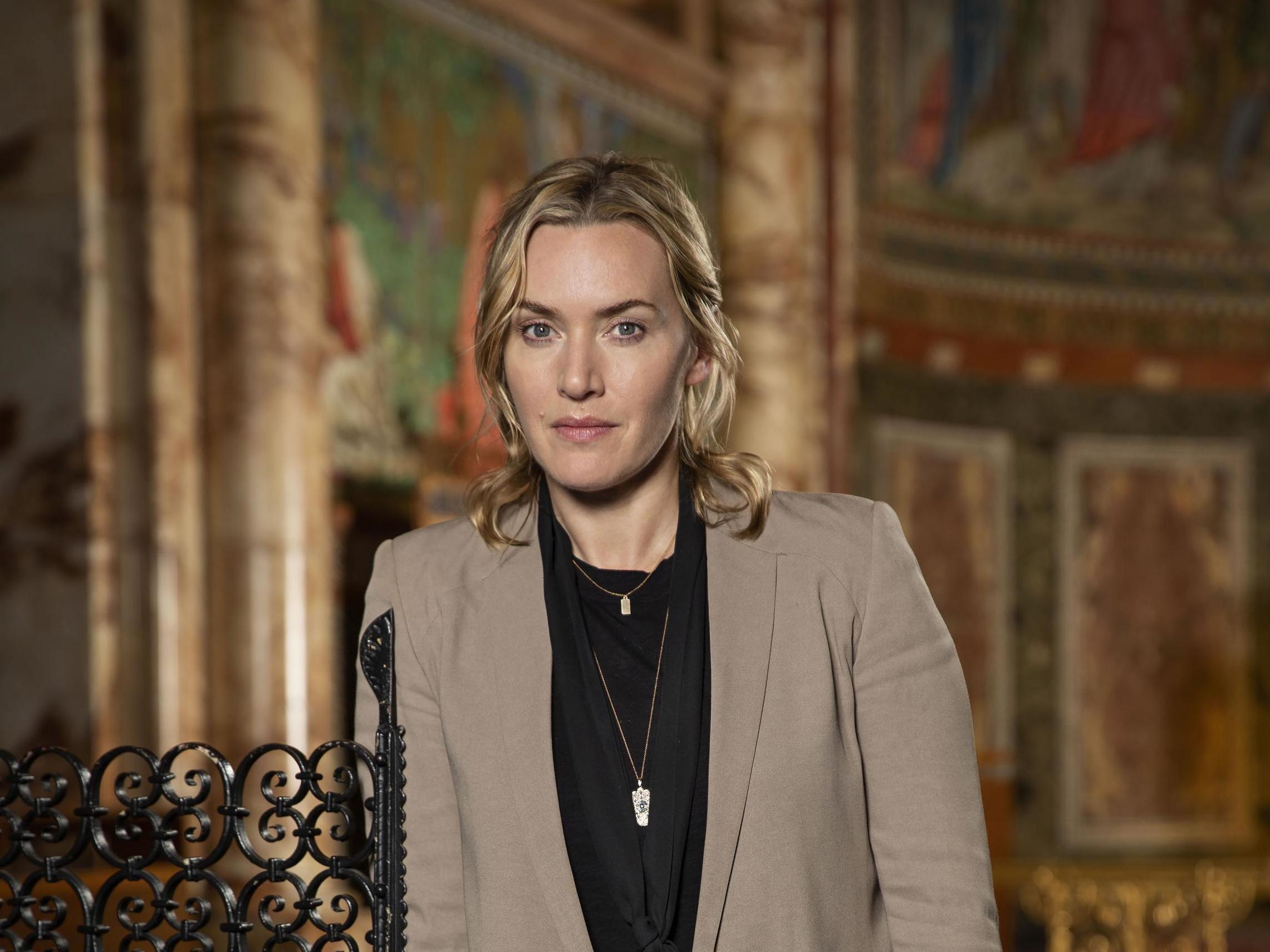Who Do You Think You Are? review: A Napoleonic drummer boy is as close to showbiz as Kate Winslet gets
Winslet appears just as “grounded” as she claims to be in the latest episode of the genealogy show

Fond as I am of the Swedes and all things Swedish, I still find myself at a bit of a loss to understand why Kate Winslet literally whooped with delight when she discovered that family rumours about her Swedish ancestry were in fact well-founded. Touring picturesque rural Sweden, we find Winslet shedding tears of joy to learn that a not too distant forbear on her mum’s side is “100 per cent Swedish”, like he was a Volvo or a pickled herring.
Her suspicions satisfied that her “Scandinavian-looking” family did indeed have some full-on Nordic heritage, Winslet goes through the usual Who Do You Think You Are? routine of dusting off the genealogical records, and finds that life in Sweden in the 19th century could be extremely rough. Quite a few of her relatives died of malnutrition, and several of her forefathers found themselves having to steal to sustain their starving families. Her great-great-great-grandfather, a horseman, was nabbed for procuring a couple of bags of potatoes in 1832. The court recorded: “Anders Jonsson, who has a weak body constitution, a more round than oblong face, a pointed nose and dark hair and dark eyebrows, stated that he is 42 and has never been suspected of anything.” Except that, in an early bit of Wallander-style sleuthing, the cops found out that he’d previously been done for the theft of three beehives, when he made off with the honey, so to speak. He had previous.
Anders was sentenced to 70 lashes of the cane, a punishment he only escaped because he died from typhus in jail. It came just a few months after his three-month-old son died of starvation. “God I’m angry now,” Winslet proclaims. Fair enough. Thankfully, Anders’ grandson qualified as a tailor and emigrated to London to make what turned out to be a comfortable living from Savile Row in around the 1880s, and he had no need to nick anything.
Meanwhile, over on Winslet’s mum’s side, she traces a long line of British soldiers, of Irish origin as it happens. One, William Colquhoun, enlisted at age 11, during the Napoleonic Wars, as a drummer boy in the Grenadier Guards, an easy way for a poor kid to get an education. By his 30s, still in uniform, he’d become a Drum Major, a big ceremonial, showy sort of position, the nearest thing to showbiz Winslet can find. However, a drum major was also required, by custom, to flog drunken, dishonest and deserting soldiers, with a not dissimilar criminal profile to some of the Swedish branch of the Winslet family around the same time. We assume the drummers were chosen to administer these lashings because they had an excellent sense of rhythm, rather than because they were innate sadists. Maybe that runs in the family (the musical ability, not the sadism) as we see Kate trying out a bit of military drumming herself: Nice to see our unpretentious national treasure banging her own drum for change.
Drum Major Colquhoun ended up as one of the first senior warders at “Dartmoor Experimental Prison”, which was opened to civilians in about 1850. A report at the time describes him as a “good and efficient soldier… worthy and sober” – “and good at whipping people”, his great-great-granddaughter adds.
Despite her distress about the “horrific” beatings doled out by, and to, various ancestors, Winslet is pleased that she’s gone on her adventure. “It makes me feel as if I fit in somewhere more,” she says, which is about as good as it can get with a set of dead strangers who just happen to share your DNA.
In the pre-publicity for the show, Winslet said she would have been “upset and disgusted” if she’d found she had come from a wealthy background. Growing up in Reading as one of six siblings she is at pains to tell the camera, “I ain’t posh mate”. I’m not sure the Oscar-winning star of Titanic and countless other movies is quite right on that, but she seems just as “grounded” as she claims to be. I doubt that if she’d dug up some Swedish aristocrat, a Rothschild or a Getty in her back catalogue, it would make that much difference to her, or us.
Join our commenting forum
Join thought-provoking conversations, follow other Independent readers and see their replies
Comments
Bookmark popover
Removed from bookmarks